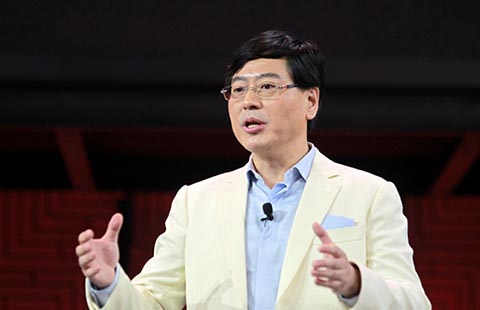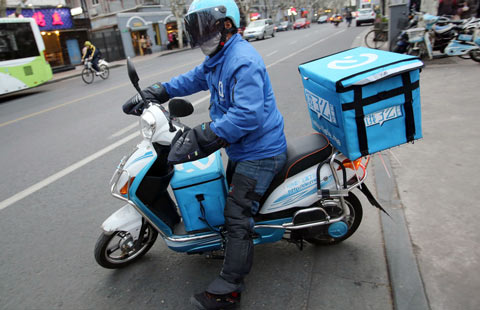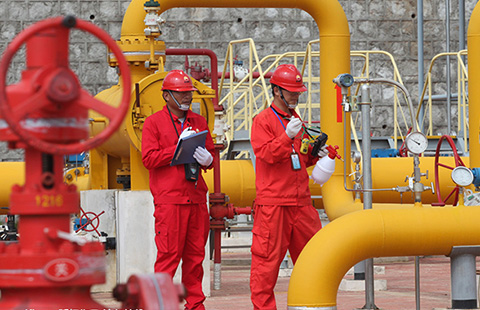Suspected shoddy gasoline angers consumers
(Xinhua) Updated: 2012-05-10 15:55BEIJING - As China announced the latest cut in retail gasoline and diesel prices Wednesday, Chinese car owners may well feel little comfort but have their discontent rekindled by a new scandal over the fuel quality.
The Chinese government said it will lower the retail prices of gasoline and diesel from Thursday to accommodate falling global crude prices, but the benefit this decision will bring to consumers was shadowed by spreading distrust over the quality of fuels supplied by state oil giants.
Thousands of car owners reported engine flameouts or exhaust pipes going rusty or discharging unidentified liquid after getting refueled at two service stations in Taicang city of Jiangsu province from April 24 to 28.
More than 100 infuriated consumers blocked the two service stations to demand solutions after learning from repair shops that substandard gasoline caused the malfunction.
Local authorities sent fuel samples from the stations for testing on April 29 and said test results showed the gasoline was qualified. But consumers refused to believe and suspected the samples belonged to a different batch of gasoline from that sold to them previously.
The Jiangsu subsidiary of PetroChina Company Ltd, which is China's largest oil and gas producer and provided gasoline to the stations, insisted their products were qualified.
However, it agreed on Sunday to pay a compensation of 3,500 yuan ($555) for each consumer who had their cars charged with 93 RON gasoline at the two stations from April 24 to 28.
"By doing so, the company tacitly admitted the gasoline was problematic. Is it so hard to face the reality?" A car owner surnamed Chen told Xinhua.
Around 3,000 to 4,000 cars were affected in the incident, said a PetroChina employee who declined to be identified.
Consumers vented their doubts and furies on the Internet, asserting that the gasoline was below standard.
"If there was nothing wrong with the petrol, why would they pay compensation?" microblogger Yimingtao wrote on China's twitter-like Sina Weibo on Wednesday.
"The fuel price is finally coming down a little, but now we have this ugly thing. PetroChina, you're so brutal," an Erdongcheng complained in his tweet.
Coverage about the incident drew acrid comments on Sina.com, the country's largest portal website, while Sinopec, China's largest oil refiner, became collateral damage.
"Shame on Sinopec! Its gasoline is not just expensive but also of poor quality," a netizen going by the name of Sunxr said.
Similar scandals erupted in provinces of East and Central China last year and in Southwest China's Yunnan province, Guizhou province and Guangxi Zhuang Autonomous Region in February this year.
In February, online complaints alleged Sinopec and PetroChina diluted the widely-used 93 RON gasoline in order to cut costs and caused vehicles to malfunction.
PetroChina and Sinopec firmly defended themselves, saying there was no problem with their products.
The quality problems were caused by the practice of some filling stations substituting cheap but low-quality gasoline from small private refiners for standard products to reduce costs, a worker at a filling station in Nanjing city of Jiangsu told Xinhua.
To save high consumption taxes on refined oil, some stations mixed gasoline with oil products that should have been used as raw materials in chemical industry, according to a manager from Sinopec's Jinling subsidiary in Nanjing, who refused to be identified.
Consumers argue that PetroChina and Sinopec are to blame as they didn't address the incident in a serious and responsible manner.
"The two oil giants only care about themselves. We strongly demand opening the refined oil sector to private companies and joint ventures," Laoji commented on Sina.com.
Often jeered as "two barrels of oil" by netizens, PetroChina and Sinopec have long been the target of public criticism for profiting from the monopoly of the country's oil sector.
Meanwhile, some called for a better role played by the government.
Authorities should tighten the regulation of gasoline quality and improve the quality test, a netizen identified as Baiyang commented on Sina.com.
"The 'two barrels of oil' showed no actions or sincerity in solving the problem, but the safety of consumers can not be decided by them," wrote Wang Jikai, an online commentator. "I hope the government can help them straighten out the facts and give us an acceptable and scientific explanation."
- Big data to make the difference for online businesses
- Huawei smartphone revenue more than doubles
- Textile firms go on an overdrive in New York
- China starts electrical steel anti-dumping investigation
- PayPal confident on sustained growth
- Local governments are back on growth track
- Toyota delays move to build Lexus in China
- ICBC biggest profit earner in the world
















